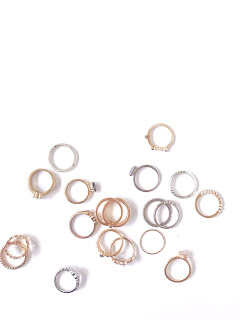Women And Men No Longer Need Each Other
 |
| Photo by coco tafoya on Unsplash |
I don’t understand why most people get married at all
I’m part of an ever-shrinking minority: I like being married.
Lots of people don’t. They prefer to live alone, where they can order their life however they wish. They can keep an immaculate house or live like a slob, and it’s nobody’s business but their own. They decide how they’ll spend their money, whether they’ll get a pet and how they’ll arrange their days.
That doesn’t sound so bad, but by being married I get companionship, help with chores and someone who is there for me when I’m ill or upset — and he gets the same from me. Being single is better than being in a bad marriage, as I know from experience. But being in a good marriage is the best option of all, in my opinion.
Modern life allows people this choice. Being single used to be fairly impractical before technology came along.
Think back to the past, when we did need each other. We women needed you guys and your physical strength to protect us from wild animals and dangerous marauders and to bring back meat from the hunt. We couldn’t very well do such things for ourselves, particularly while pregnant or nursing a child — and we were nearly always doing at least one of these things.
You guys needed us, too. If you wanted heirs, you needed a wife. Keeping house, making clothing and preparing food took considerable effort, and you needed someone else to take care of these things while you were out doing your manly stuff. If you were wealthy enough, you could pay servants to keep your house, but a wife was certainly cheaper.
I’m painting history with a broad brush, but men and women have largely depended on each other in every age. Oftentimes, men without means couldn’t get a wife, but in that case they weren’t living alone; they were soldiers who didn’t have a household of their own, or they were servants and the larger household they served provided for their ordinary needs. (While there have been cultures and eras in which men without means found it difficult to marry, almost every woman had to marry, regardless of what her wishes might be. The more powerful “alpha” men with high status would marry multiple wives, and the lower-status men were left high and dry.)
Thank you, modern life, for things like police protection, the ability to hold down a job to support ourselves and contraception so we can devote just a few years to bearing and nursing children (or not having any children at all). Thank you for electricity, running water and modern agriculture and food distribution so we don’t have to toil for hours a day to keep our homes clean and comfortable and to get meals on the table. We don’t need a big strong guy to chop our wood or haul in water or butcher big animals for us.
The same story goes for men, who are freed from having to devote brute strength to hunting and farming and fighting, and from having to provide complete support to a wife and a large family. They can purchase all their clothing. If they don’t want to cook, they can rely on convenience foods or take-out. They can hire a maid if they want, but it’s a lot easier to keep house now than it used to be. Male worthiness isn’t proven by feats of strength anymore, either. Both men and women can just work at a computer instead.
Women have plenty of disadvantages in this world, but we do carry one innate ace in the hole: We can have children without having to tie ourselves to a man. Men? Sure, they can adopt or hire a surrogate, but achieving solo fatherhood is for biological reasons not nearly as simple as solo motherhood. In the wake of a traumatic divorce I survived a lifetime ago, the thought crossed my mind that women might be better off living without men altogether. Maybe, I thought, we should guide our daughters toward single motherhood so they’d never have to deal with all the post-divorce bullshit. But I have a son, and that stopped that line of thought cold. If he ever fathers a child, I would never want him to be cut out of that child’s life.
There was a good reason marriages seldom ended in divorce until the 1970s, when women started becoming less financially dependent on their husbands. The real surprise, to me, is why marriage persists in an age when it offers so few advantages. We even expanded marriage to gay couples. Obviously, gay couples don’t have babies together accidentally (unless at least one of them is trans) so they generally aren’t choosing marriage in preparation for having a baby together.
Something is happening to marriage.
In Europe, marriage is becoming less common. My husband is Dutch, and his younger relatives are pairing up and starting families without bothering to marry, and it’s honestly fine. Here in the U.S., the stigma of raising children outside marriage lingers. Why? Outside a very small number of Americans who still believe sex outside marriage is wrong, most of us are a bit more enlightened. If you’re going to agree sex outside marriage is acceptable, it’s hard to say raising children outside marriage is not.
But the assumptions of marriage are changing. It never occurred to me that a married couple wouldn’t share all their resources, but as it turns out, I couldn’t have been more wrong. Experts actually advise you to keep your money separate. That’s advice my husband and I completely ignore. We combined our money from the very beginning, and I can’t imagine it being otherwise. If we didn’t trust each other financially, why would we have even married? At times I’ve earned all or most of the money and at other times he has. Currently, he’s carrying almost all the financial load as I continue to try to figure out how to make a living as a writer in a post-newspaper world. He doesn’t keep track. Never once has he suggested I am in debt to him. Nor do I feel like the money in the bank is his. It’s ours, just as it was when I made more money. My husband and I have never had a fight about money. What’s to fight about? We both put everything into the same pot and we both take what we need from the pot. There’s nothing to argue about. (I’m not trying to pretend we never have any issues. We just don’t have that issue.)
What happens when someone who makes lots of money marries someone who makes less? I can’t imagine the conversations:
Her: “I’d like to take a two-week vacation to Paris next year.”
Him: “Sorry, no can do. How about a weekend at an amusement park? I think I could swing that.”
Her: “Fine, I’ll go to Paris alone. By the way, you still owe me $37.60 for your share of dinner last night.”
If a husband and wife keep their money separate, it’s not likely the woman is ever going to feel comfortable taking a few years off to care for their children. She’s going to feel compelled to get back to work as soon as possible because she needs to make her own money to keep paying her own way. Didja hear about the woman who asked her “spiritual” husband for $50K in order to cover her costs of having their baby?
If marriage is looked at as a financial partnership, that’s going to cut out a lot of potential marriage partners. You don’t want to marry anybody whose income isn’t fairly close to yours, right? It takes us right back to the days of marriage as a financial arrangement. More about that below.
Reasons for marriage just keep changing. Originally, marriage offered a framework to ensure the care of children and for a permanent-ish sex partner, but in hunter-gatherer societies, there was a lot of polygamy, and men coming back from a journey to discover their wife conceived during their absence generally took such things in stride. After we adopted agriculture and permanent settlements instead of hunting and gathering and moving around, we started to care more about inheritance, probably because for the first time in history, there was actually something substantial to hand down. A man wanted his children to inherit the ground he’d cleared and the house he’d built, and that meant ensuring his wife was only bearing his children. (It didn’t really matter if other women besides his wife were also bearing his children, since those babies were never going to inherit anything from him. Thus was the patriarchy born along with the domestication of animals and planting of crops.)
Jane Austen knew what’s up.
“It is a truth universally acknowledged, that a single man in possession of a good fortune, must be in want of a wife.”
― Jane Austen,* Pride and Prejudice
Read some novels set in the Regency and Victorian eras and you’ll see a lot of match-making angst. The wealthy had endless customs and traditions devoted to making sure everyone married the right sort. The idea of marrying for love was fine, as long as you fell in love with someone from your own social class who could offer your family some kind of alliance or financial advantage. If you were wealthy, you weren’t going to let your daughter run off with someone charming and penniless. And if your son had a big inheritance to look forward to, he certainly could not be allowed to marry a sweet, beautiful girl from an impoverished family (unless, of course, she had a really impressive pedigree and the groom needed to purchase some respectability.) Beautiful and poor women from obscure families were viewed as suitable mistresses, but not wives. Watch a period production and the discussions about money and matchmaking are positively sickening. I fear we risk a return to those days now, even though the decisions are made more by the individuals and less by their families.
Plenty of couples today marry with no plans to have children and no plans to combine their finances. They could have all the sex they want without getting married at all. Divorce is painful and emotionally difficult, but it’s socially acceptable and readily available. If marriage isn’t about money or morality or children, what is it about? What’s it good for? Why are we still doing it, and will we give it up as a silly old custom in a few generations?
I honestly have no idea.
*Old Jane wrote a lot of books about marriage, but she never married. Maybe she knew too much.

Comments
Post a Comment